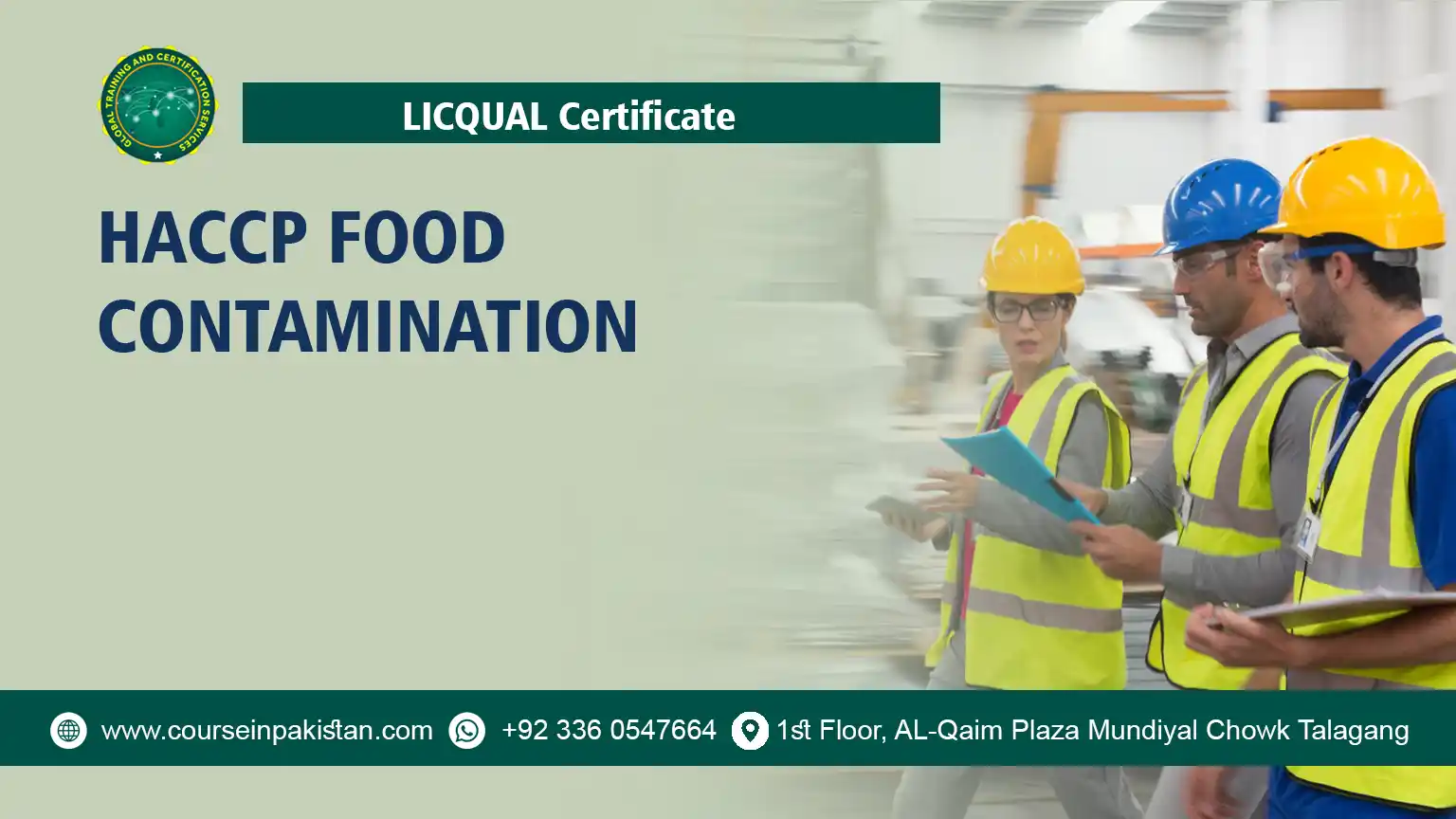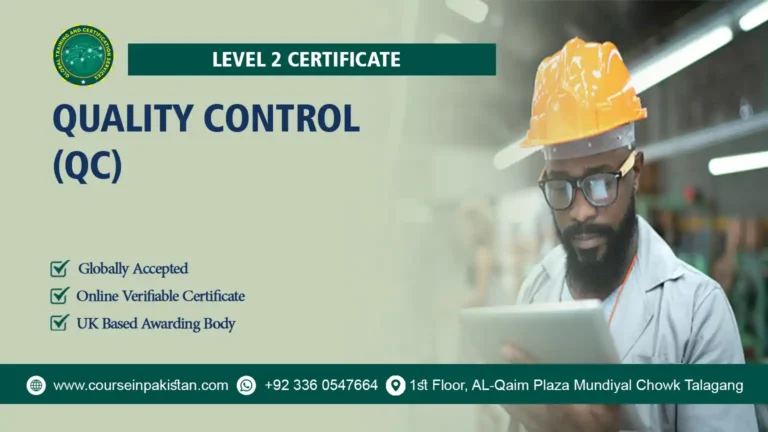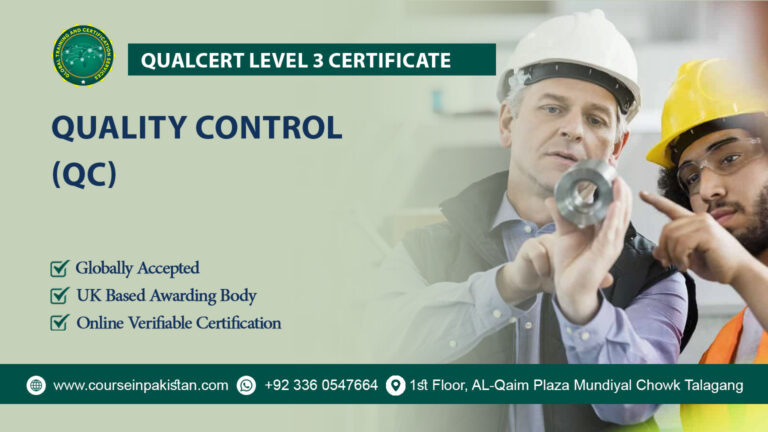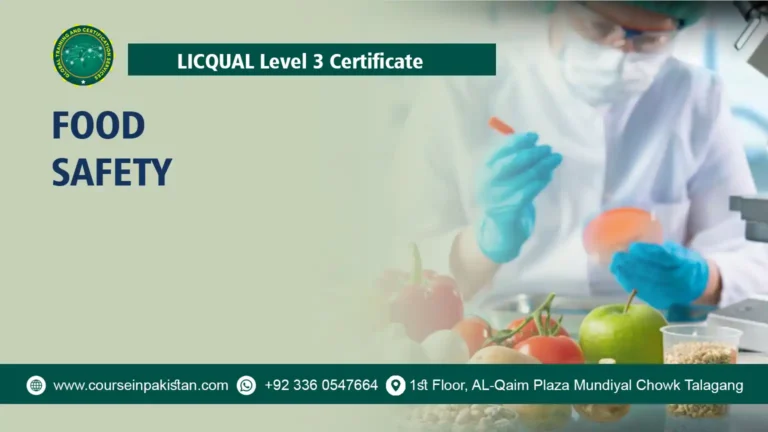
Certificate in HACCP Food Contamination
Food contamination poses significant risks to public health and consumer confidence. The Certificate in HACCP Food Contamination is a specialized training program designed to equip professionals with the knowledge and skills necessary to identify, assess, and mitigate food contamination risks using Hazard Analysis and Critical Control Points (HACCP) principles. This course focuses on proactive measures to prevent contamination at every stage of food production, processing, and distribution.
Course Introduction
In the Certificate in HACCP Food Contamination course, participants delve into the complexities of food safety management, specifically addressing the various sources and types of contamination that can compromise the safety and quality of food products. The course emphasizes the application of HACCP principles to develop robust contamination prevention strategies, ensuring compliance with regulatory standards and enhancing consumer protection.
Course Overview
This comprehensive course covers essential aspects of food contamination prevention and management. Participants will learn to conduct thorough hazard analyses, establish critical control points (CCPs), implement control measures, monitor processes, take corrective actions, and maintain accurate documentation. Practical insights and case studies provide real-world applications of HACCP principles in addressing contamination risks effectively.
Course Benefits
- Enhanced Food Safety: Acquire expertise in identifying and mitigating contamination risks throughout the food supply chain.
- Compliance Assurance: Understand and adhere to regulatory requirements and industry standards related to food safety and contamination prevention.
- Risk Management: Implement preventive measures to minimize risks of microbial, chemical, and physical contamination.
- Operational Efficiency: Improve operational processes by integrating HACCP principles to ensure consistent food safety practices.
Course Study Units
- Introduction to HACCP and Food Safety Management
- Identifying Food Contamination Hazards
- Principles of HACCP Plan Development
- Establishing Critical Control Points (CCPs)
- Implementing HACCP Plans in Food Production
- Monitoring, Verification, and Record-Keeping
- Handling HACCP Non-Conformities and Corrective Actions
Learning Outcomes
Introduction to HACCP and Food Safety Management:
- Understand the principles and importance of Hazard Analysis and Critical Control Points (HACCP) in ensuring food safety.
- Explain the benefits of implementing HACCP systems in food production and processing operations.
- Recognize the role of regulatory requirements and industry standards in guiding HACCP implementation.
Identifying Food Contamination Hazards:
- Identify common food contamination hazards, including biological, chemical, and physical contaminants.
- Conduct hazard analyses to assess the likelihood and severity of contamination risks.
- Prioritize hazards based on their potential impact on food safety and consumer health.
Principles of HACCP Plan Development:
- Develop HACCP plans tailored to specific food production processes and operations.
- Outline the seven principles of HACCP and apply them to develop systematic control measures.
- Define critical control points (CCPs) and establish critical limits for each point to prevent or eliminate identified hazards.
Establishing Critical Control Points (CCPs):
- Identify critical control points (CCPs) where control measures are essential to prevent, reduce, or eliminate food safety hazards.
- Establish monitoring procedures to ensure CCPs are effectively managed and controlled.
- Develop procedures for verifying CCPs to confirm that control measures are consistently applied and effective.
Implementing HACCP Plans in Food Production:
- Implement HACCP plans within food production and processing operations.
- Train personnel on HACCP principles and procedures relevant to their roles.
- Integrate HACCP protocols into daily operations to ensure compliance with food safety standards and regulatory requirements.
Monitoring, Verification, and Record-Keeping:
- Develop monitoring procedures to oversee critical control points (CCPs) and ensure compliance with established critical limits.
- Verify the effectiveness of HACCP plans through regular audits, inspections, and testing procedures.
- Maintain accurate records and documentation of monitoring results, corrective actions, and verification activities.
Handling HACCP Non-Conformities and Corrective Actions:
- Identify non-conformities and deviations from critical limits in HACCP processes.
- Implement corrective actions to address non-conformities and prevent recurrence.
- Establish procedures for continuous improvement based on corrective action outcomes and monitoring findings.
These learning outcomes equip participants with the knowledge and skills necessary to effectively implement and manage HACCP principles in food production and processing environments. By focusing on understanding HACCP fundamentals, identifying contamination hazards, developing robust HACCP plans, establishing critical control points, implementing monitoring and verification procedures, and managing corrective actions, this course ensures that food safety standards are upheld and compliance with regulatory requirements is maintained throughout the food supply chain.
Who is This Course For?
The Certificate in HACCP Food Contamination is suitable for:
- Food safety managers and supervisors responsible for contamination prevention and control.
- Quality assurance professionals and auditors in food production, processing, and distribution.
- Regulatory compliance officers and consultants involved in assessing and mitigating contamination risks.
Future Progression for This Course
Completion of the certificate opens pathways for further specialization and career advancement:
- Advanced Food Safety Training: Courses focusing on specific aspects of food safety management, such as allergen control, sanitation practices, or crisis management.
- Certified HACCP Auditor: Certification for professionals interested in auditing HACCP systems and ensuring compliance with global standards.
- Leadership Roles: Opportunities for senior management positions in food safety management, regulatory affairs, and quality assurance within the food industry.
Certificate in HACCP Food Contamination equips participants with essential skills and knowledge to effectively manage contamination risks in food production, processing, and distribution. By emphasizing proactive prevention strategies and compliance with regulatory standards, this course ensures that food remains safe, wholesome, and compliant with consumer expectations in a competitive market environment.






